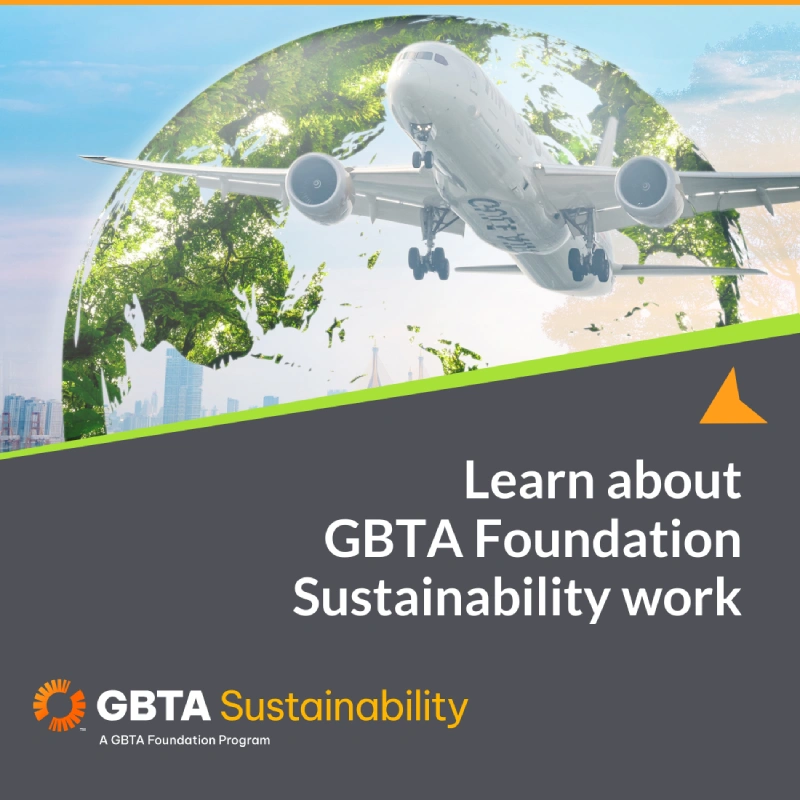-
Discover SAF Corporate Connect
-
Learn about SAF
- Learn from Corporates
-
Stay Informed
Fueling Collaboration to Decarbonize Business Travel
SAF Corporate Connect is a forum aiming to foster collaboration and knowledge sharing among the business travel community on Sustainable Aviation Fuel (SAF). This forum will provide trusted insights, peer-driven case studies, and practical tools to help reduce emissions from corporate travel programs.
Register for our upcoming webinar on October 29, “The SAF Playbook: Lessons from Corporate Sustainability and Travel Teams”.
Check Your Knowledge
Indicate whether the following statements are True or False to see where to begin your SAF journey.
I want to…

- SAF 101 Factsheet (RSB): An overview of what SAF is and how it reduces emissions over its lifecycle compared to fossil fuels
- SAF 101 (SABA): A deep dive into different SAF production pathways and sustainability certifications
- Book & Claim Factsheet (RSB): An overview of how corporates are accessing SAF in the face of limited availability

- Sustainable Aviation Fuels: Offtake Manual (World Economic Forum): A report with best practices for procuring SAF, including how to align stakeholders (pgs. 17-23)

- Building the Business Case for SAF (SkyNRG): A whitepaper outlining how companies can make the business case to procure SAF
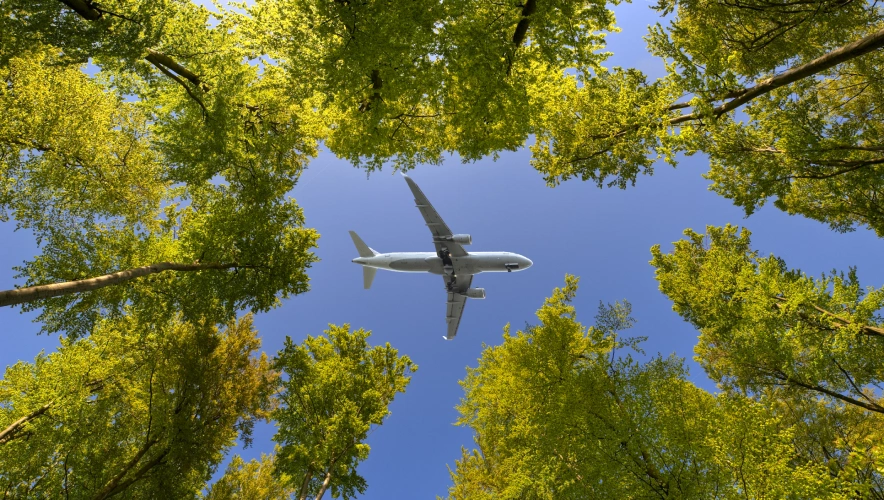
- Sustainable Aviation Fuels: Offtake Manual (World Economic Forum): A report with best practices for procuring SAF, including watchouts (pgs. 17-23)
- Sustainable Aviation Fuels (SAF) Sustainability Guide for Corporate Buyers (Transport & Environment): A guide with criteria to consider when purchasing SAF and different purchaisng options for corporate buyers (pgs. 24-30)

- Sustainable Aviation Fuel Certificate (SAFc) Emissions Accounting and Reporting Guidelines (World Economic Forum): Step-by-step guidelines for standardized SAF accounting and reporting, including specifically for business travel (pgs. 25-28)
- Science-Based Target Setting for the Aviation Sector (Science Based Targets initiative): Target-setting guidance for aviation companies, including how corporate buyers can account for SAF towards air emissions abatement (pgs. 30-32)
The Challenge
Aviation remains one of the hardest sectors to decarbonize. For companies that rely on air travel to meet their business objectives, Sustainable Aviation Fuel (SAF) is one of the few technologies available that can be utilized today to drive real, highly credible emissions reductions. The carbon emitted during the production of SAF – from raw materials to distribution – can be up to 80% less than traditional jet fuel.
The International Air Transport Association (IATA) estimates that to meet Net Zero by 2050, SAF needs to contribute 65% of aviation’s emissions reduction strategy. However, SAF uptake for corporate travel is slow: the GBTA Sustainability Acceleration Challenge shows that only 12% of companies are purchasing SAF, with travel managers citing limited budgets, lack of awareness or understanding of SAF certificates, and perceived complexity of the purchasing process as key challenges. The corporate travel market can play a critical role in scaling up the SAF market but urgently needs a platform to address barriers to adoption.
Up to 80% less emissions
65% SAF contribution needed by 2050
The Solution
SAF Corporate Connect is a forum aiming to foster collaboration and knowledge sharing among the business travel community on Sustainable Aviation Fuel (SAF). This forum will provide trusted insights, peer-driven case studies, and practical tools to help reduce emissions from corporate travel programs. Participants gain access to a rich library of educational resources, practical tools, and interactive webinars to deepen their knowledge of SAF and drive informed purchasing decision-making. Through online and offline exchanges, they can connect with peers, experts, and suppliers to share strategies and best practices to build the business case for certified SAF. SAF Corporate Connect will give individuals and companies the tools they need to utilize SAF towards their travel sustainability goals and accelerate the corporate travel demand signal for this critical decarbonization pathway.
Learn
Connect
Share
Act
Why Sustainable Aviation Fuel is Important
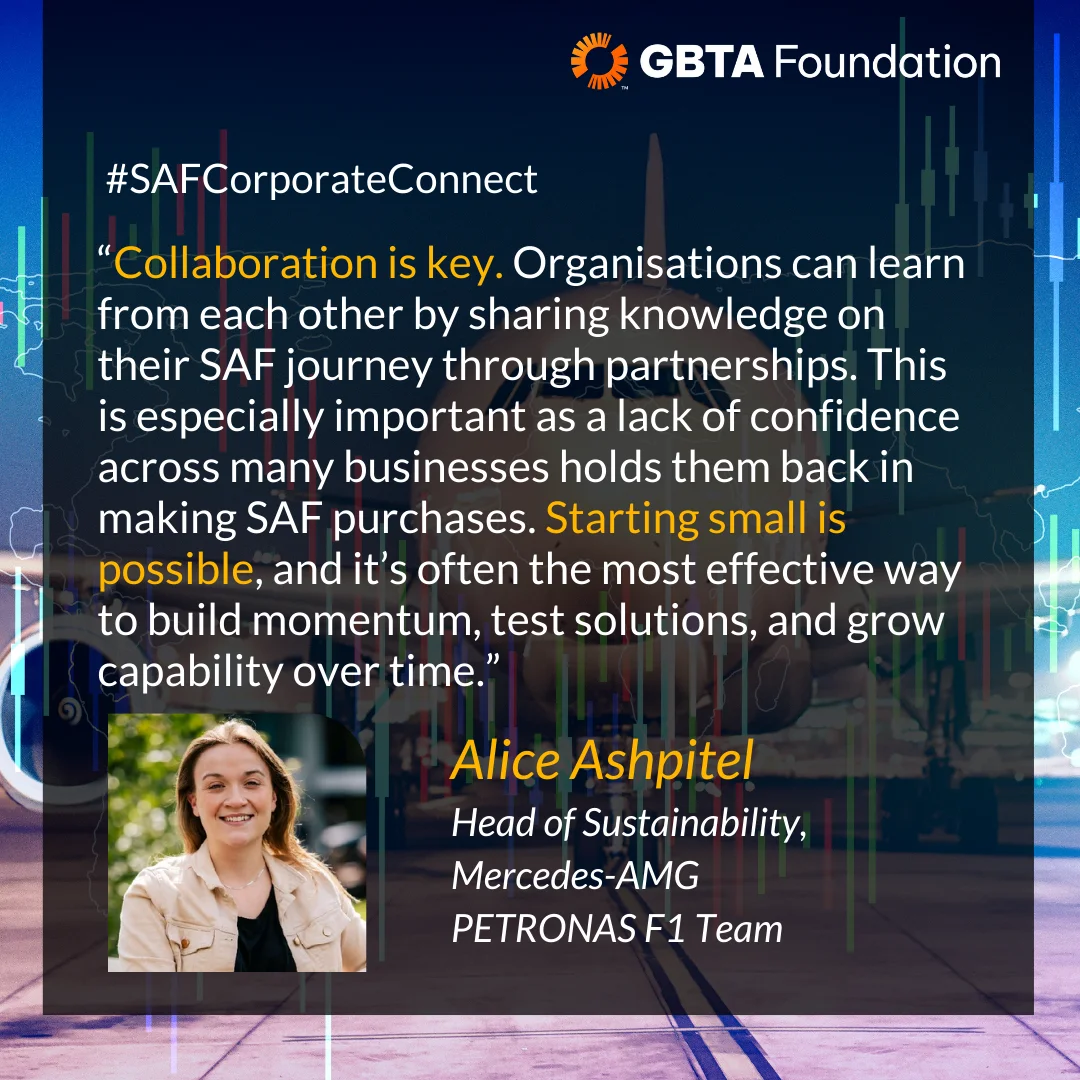
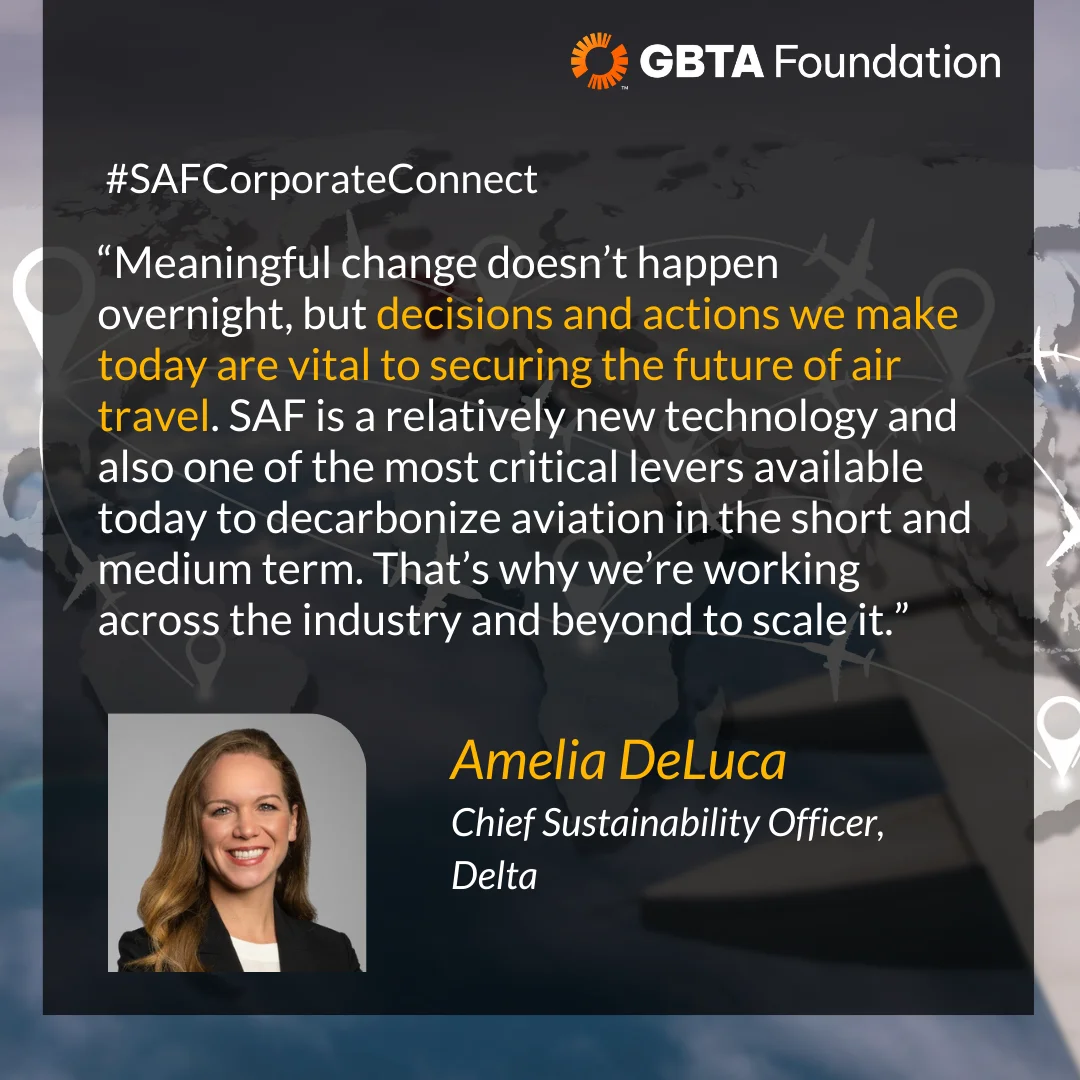
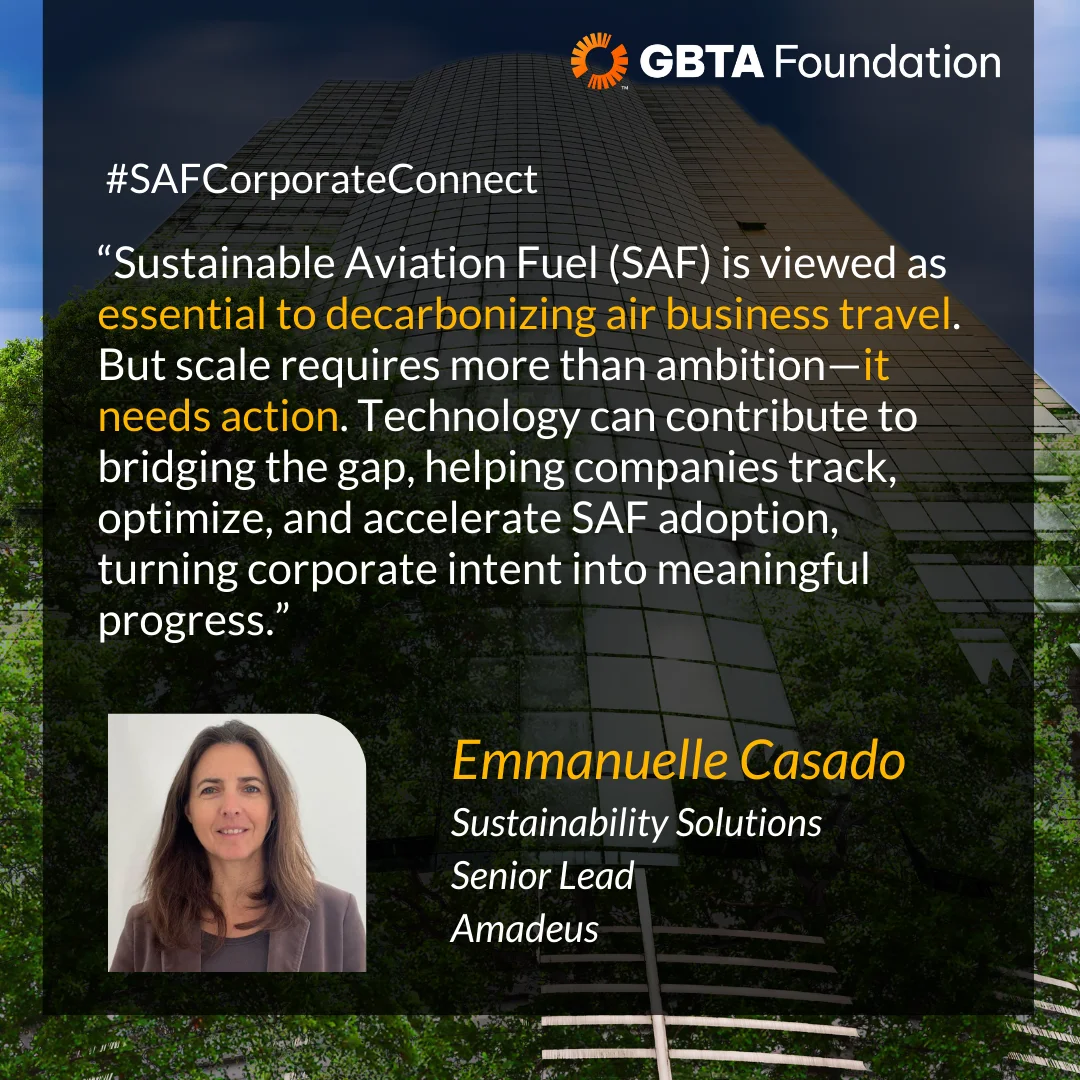
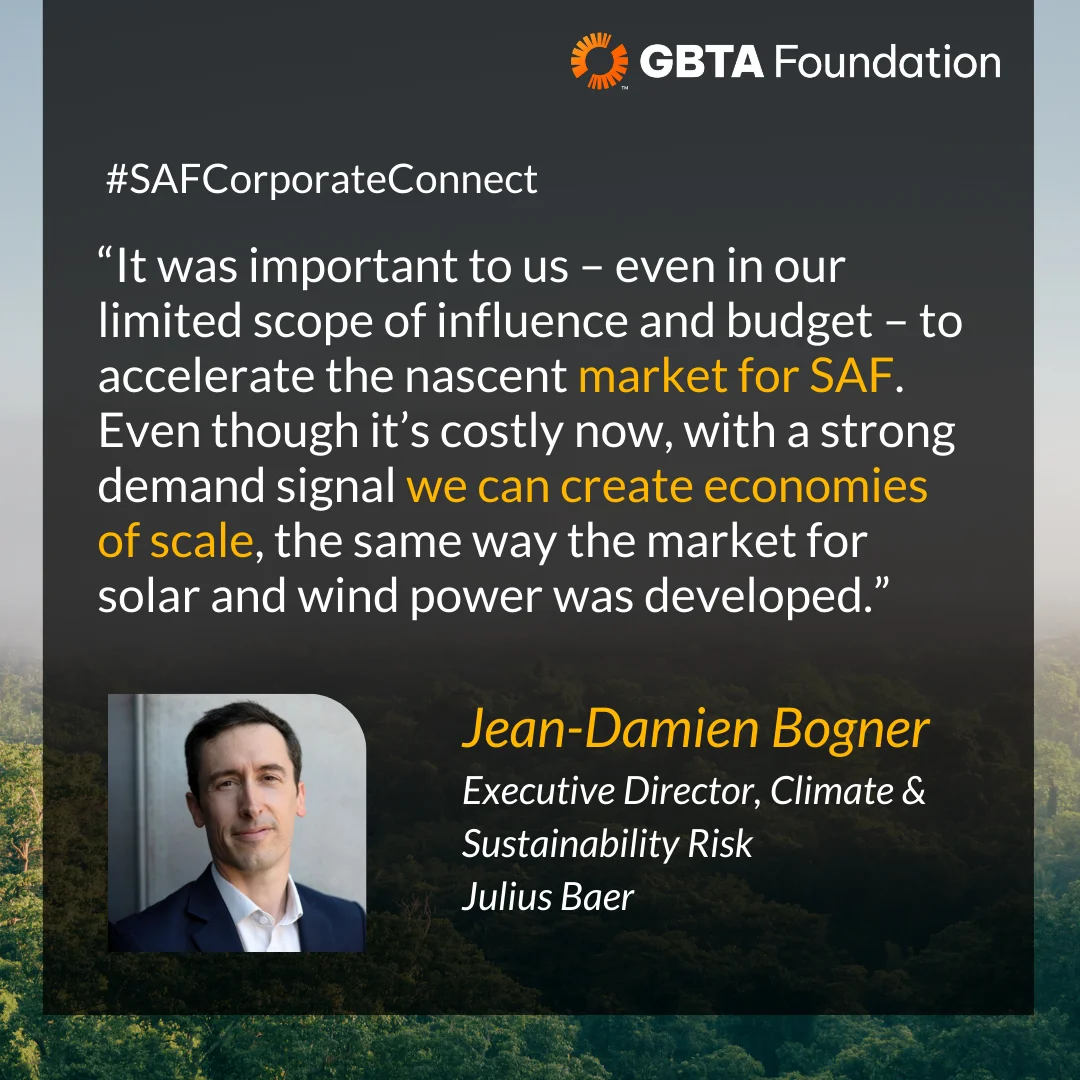
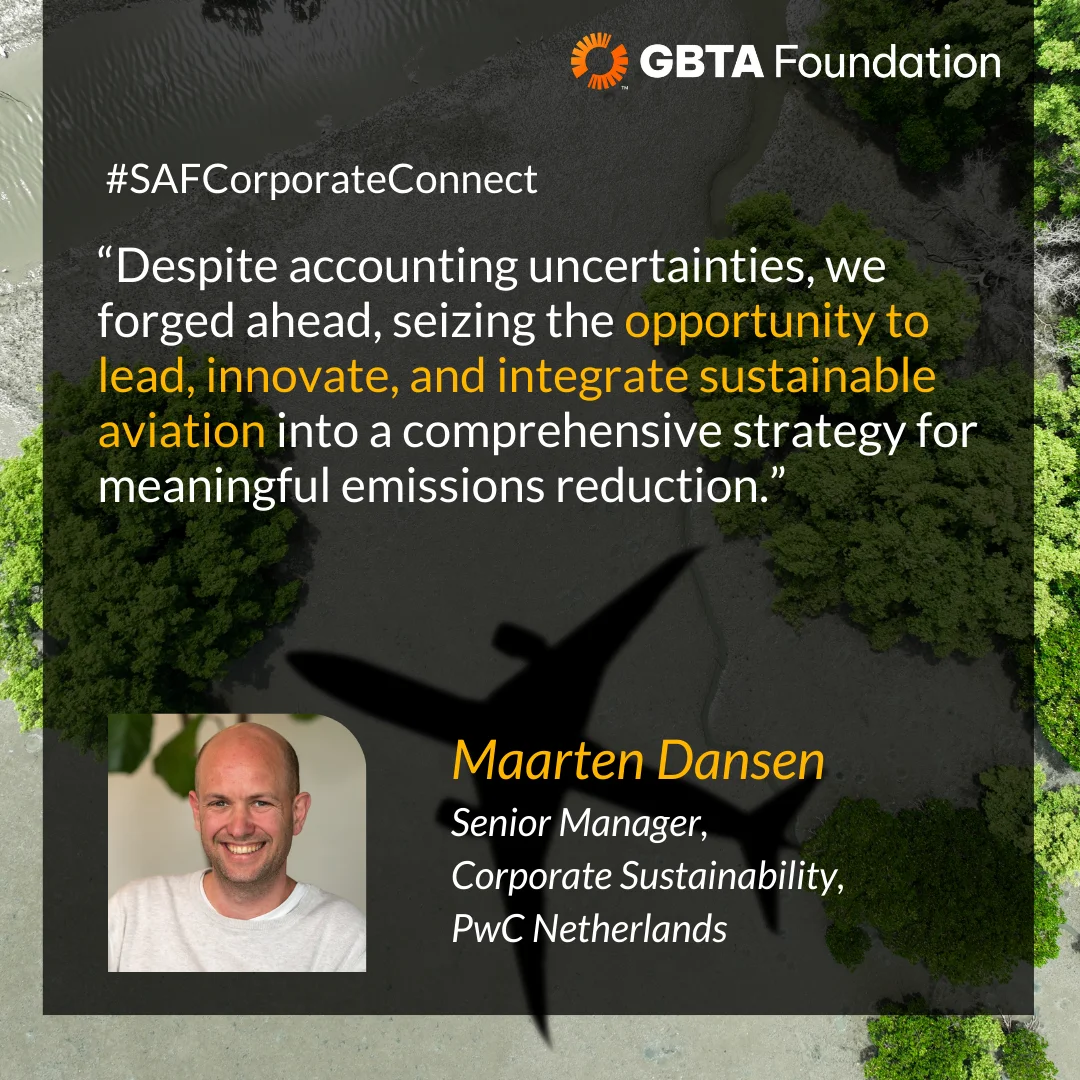
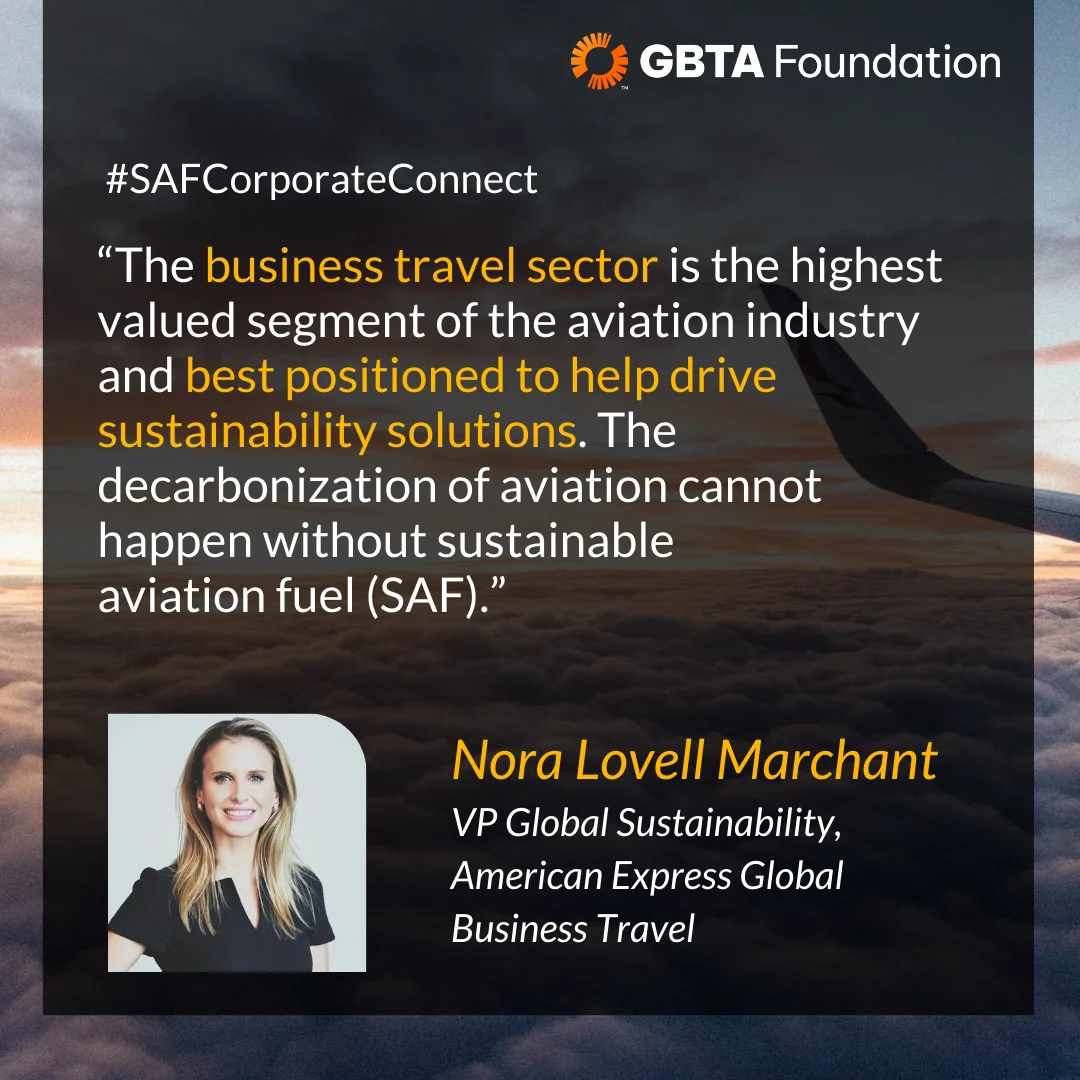
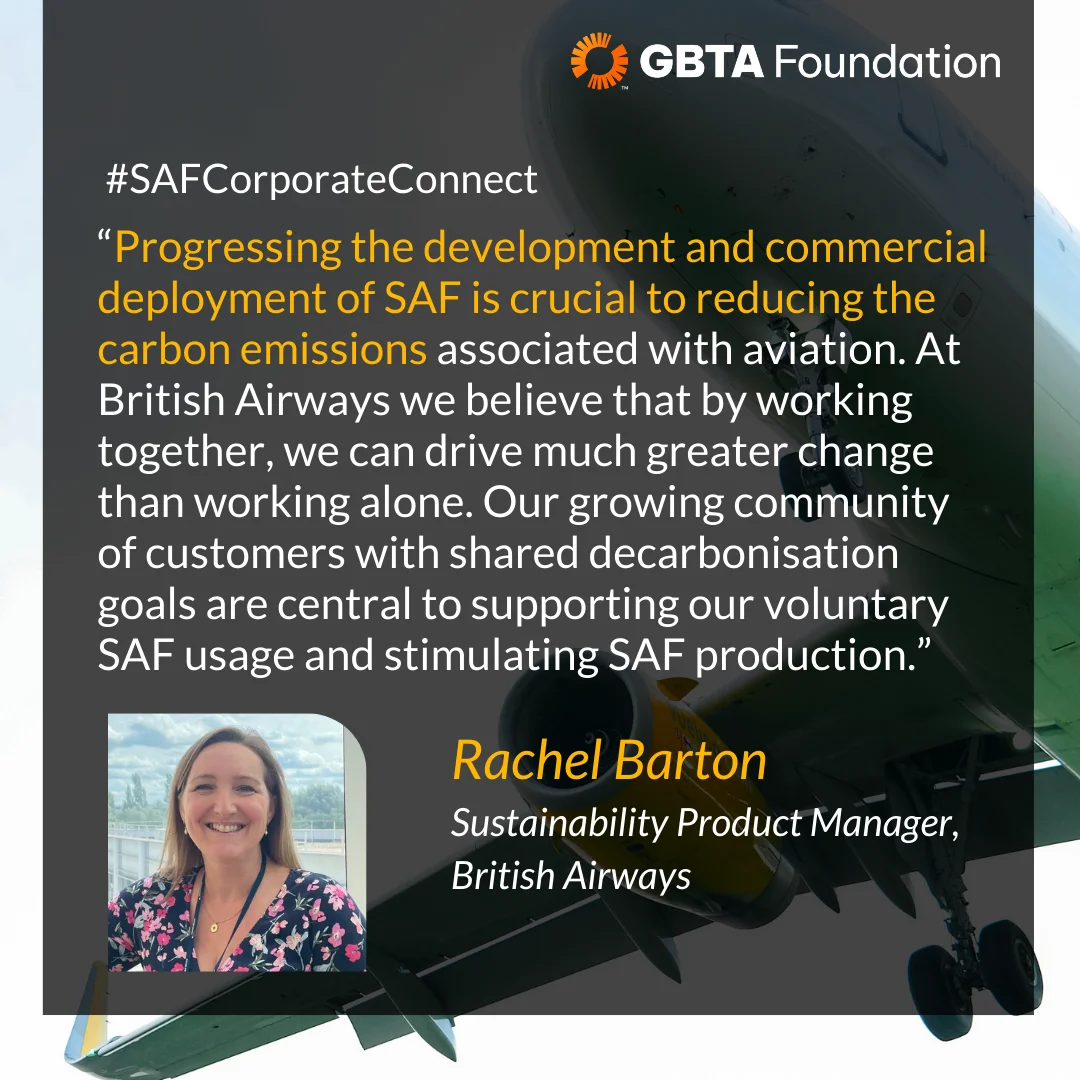
Who should participate?
Learners
Explore how to incorporate SAF in your business travel program through practical guidance and tools, exchanges with peers and industry leaders, and hands-on workshops
Thought leaders
Share knowledge and foster strategic partnerships to scale SAF adoption through exchanges with corporate buyers and the development of practical guidance and tools
Register for our upcoming webinar on October 29
The SAF Playbook: Lessons from Corporate Sustainability and Travel Teams
Frequently Asked Questions
What is Sustainable Aviation Fuel (SAF)? Is it available today?
SAF, or Sustainable Aviation Fuel, is jet fuel derived from sustainable sources. It can significantly reduce aviation emissions and used in existing aircraft and infrastructure. According to the Roundtable on Sustainable Biofuels (RSB), SAF is “safe, scalable, and already approved for use in aircraft engines today—in blends of up to 50% with traditional fossil jet fuel.”
SAF is available today, though in limited quantities, at many major airports worldwide and through programs that allow airlines and companies to document its use through SAF certificates. Major airlines and cargo carriers are already incorporating SAF into their operations, demonstrating its ability to reduce aviation's environmental impact.
Companies can purchase SAF to abate their business travel emissions through partnerships with airlines, SAF producers/retailers, travel management companies (TMCs), and buyers’ alliances.
Is SAF more expensive than traditional jet fuel?
SAF is currently more expensive than traditional jet fuel, with prices that can be two to four times higher, though this cost gap is expected to decrease as production scales and technology advances. The higher cost is due to factors like complex production processes, limited feedstock availability, and lower economies of scale in current SAF production.
For many companies, cost is the number one barrier to increased SAF adoption. However, according to the GBTA Sustainability Acceleration Challenge, 21% of companies as part of their travel policies allow travelers to pay more for a sustainable alternative (i.e. lower emission flight, more sustainable accommodation), and surveys show that corporates with sustainability targets are willing to pay $300 per ton of CO2 emissions abated for SAF certificates, on average.
The industry anticipates that with increased investment and production volume, SAF costs will become more competitive with fossil fuels.
What is book and claim? What is a SAF registry?
The book and claim system decouples environmental attributes from the physical product (i.e., fuel), enabling these attributes to be purchased and traded separately from the actual fuel. This allows corporates to credibly purchase SAF certificates for flights occurring in locations where physical SAF is not available, and then claim the environmental benefits in their emissions reporting with an “auditable and credible trail of ownership.” This separation supports SAF growth and is essential for scaling SAF globally.
A SAF Registry is an electronic platform for tracking and verifying SAF transactions (including book and claim transactions). These registries enable the transparent accounting of SAF by allowing the issuance, transfer, and retirement of certificates, ensuring that emissions reductions are not double-counted or double-claimed.
Key examples include Avelia, a blockchain-powered book and claim solution developed by Shell, Accenture, Energy Web Foundation (EWF), and American Express Global Business Travel (Amex GBT); the RSB Book & Claim Registry, developed by the Roundtable on Sustainable Biomaterials (RSB), the SAFc Registry, founded by the Rocky Mountain Institute (RMI) and the Environmental Defense Fund (EDF), in collaboration with the Sustainable Aviation Buyers Alliance (SABA) and Energy Web; and the SAF Registry, launched by the International Air Transport Association (IATA) and managed by the Civil Aviation Decarbonization Organization (CADO).
What minimum requirements or standards should corporates take into account when looking to invest in SAF that is certified high quality?
Different types of SAF have differing benefits, tradeoffs, and levels of emissions reduction. No matter the type of SAF, companies should only invest in SAF certified by reputable, globally recognized certification bodies such as the Roundtable on Sustainable Biofuels (RSB) and International Sustainability and Carbon Certification (ISCC). According to ISCC, “for aviation fuels to be deemed as ‘sustainable’ they must meet certain sustainability criteria, including for instance a reduction in life cycle carbon emissions and ensuring that feedstocks used for SAF production are not obtained from high carbon stock lands.”
It is generally accepted that SAF can achieve a lifecycle emissions reduction (or “carbon abatement”) up to 80-85%, compared to fossil fuels. The minimum carbon abatement threshold of SAF to meet Net Zero targets varies: some organizations, such as the Sustainable Aviation Buyers Alliance (SABA), ISCC, and RSB, set the standard at 60%, while carbon abatement thresholds in Europe under the ReFuelEU Aviation directive are higher at 80-85%. Companies with more aggressive Net Zero targets might consider purchasing SAF certificates with a higher carbon abatement threshold (i.e. 80-85%).
Detailed information on the sustainability implications of different types of SAF can be found via the International Council on Clean Transportation (ICCT).
SAF is not the only lever to tackle climate emissions from business travel. How should companies consider SAF in combination with other strategies?
Companies should aim first to manage and measure their business travel emissions, encourage employees to travel smarter, and partner with travel suppliers with robust sustainability targets. The GBTA Sustainability Acceleration Challenge provides a holistic pathway and approach to tackling business travel emissions at the company level.
However, when it comes to abating emissions from air travel that cannot be avoided, SAF is one of the few solutions available now that corporates can utilize to meet their Net Zero goals. Meanwhile, airlines are working on other technological innovations and efficiency improvements (i.e. hydrogen and electric) that will play a key role in aviation’s long-term Net Zero journey.
GBTA SAF Advisors
GBTA’s Sustainable Aviation Fuel (SAF) Advisors are industry experts drawn from leading companies that partner with the GBTA Foundation’s Sustainability Initiative. Serving in an advisory capacity, they provide insights on market developments, policy, and buyers need to help shape GBTA’s SAF Corporate Connect platform. Their guidance ensures the forum is informed by real-world expertise, enabling corporate travel leaders to better understand, engage with, and invest in SAF as part of their sustainability strategies.

Ryan Spies
Managing Director, Sustainability
Alaska Airlines
GBTA Foundation Climate Leader

Emmanuelle Casado
Sustainability Solutions Senior Lead
Amadeus
GBTA Foundation Climate Leader

Nora Lovell Marchant
Vice President, Global Sustainability
American Express Global Business Travel
GBTA Foundation Climate Leader

Carl Otto
Director, Climate
American Express Global Card Services
GBTA Foundation Climate Leader

Olivia Ruggles-Brise
VP Sustainability
BCD Travel
GBTA Foundation Climate Leader

Rachel Barton
Sustainability Manager
British Airways
GBTA Foundation Climate Leader

Katharina Navarro
Global Director Travel & Mobility
Capgemini
GBTA Foundation Board Member

Amelia DeLuca
Chief Sustainability Officer
Delta Air Lines
GBTA Foundation Climate Leader

Stuart West
Sustainability Director
Deloitte
GBTA Foundation Corporate Advisor

Henry Hill
Corporate Advisor
GBTA Foundation
GBTA Foundation Corporate Advisor

Andy Shafer
Chief Marketing, Customer, and Brand Officer
Gevo, Inc.
GBTA Foundation Climate Leader

Maarten Dansen
Senior Manager, Corporate Sustainability
PwC Netherlands
GBTA Foundation Corporate Advisor

Amelia Ransome
SAF Standards & Reporting Manager,
SkyNRG
GBTA Foundation Climate Leader

Rohini Sengupta
Director of Decarbonization
United Airlines
GBTA Foundation Climate Leader
GBTA Foundation Newsletter
Follow us on LinkedIn
Get involved with GBTA Foundation Programs
The SAF Playbook for Corporates
The first-ever practical, step-by-step guide specifically developed for corporate travel managers, procurement, and sustainability professionals to build confidence in incorporating Sustainable Aviation Fuel (SAF) purchases in their organizational roadmap. You should use this playbook to strengthen your understanding of SAF and build the business case internally.
For your files: Download the SAF Playbook for Corporates
Before you get started
Aviation is essential to business travel, fostering global connectivity and collaboration. It is the only worldwide transportation network and a driver of economic and social prosperity. At the same time, air traffic accounts for 2–3% of global CO2 emissions (more when including non-CO2 effects), and could rise to one-fifth of global emissions by 2050 without intervention. For corporations to meet their business objectives, the industry must work together on solutions to mitigate aviation’s carbon impact.
Sustainable Aviation Fuel (SAF) is one of those solutions. SAF is a liquid fuel used to replace traditional jet fuel. It can be produced by several resources and when produced and distributed under strict sustainability standards, SAF can reduce lifecycle emissions by up to 80% compared to conventional jet fuel. It is the “only market-ready technology to propel close-to-zero emissions flights in this decade." For companies that rely on air travel, SAF is one of the few tools available today to help meet Net Zero goals.
Still, barriers such as high costs, limited demand, and knowledge gaps hinder the growth of a strong corporate SAF market. The International Air Transport Association (IATA) projects that SAF must deliver 65% of aviation’s emissions reductions to reach Net Zero by 2050, but both supply and demand are falling short.
To unlock SAF’s potential, business travel and the broader travel value chain must invest collectively in scaling this emerging market.
Useful resources
- Making Net-Zero Aviation Possible (Mission Possible Partnership): Transition strategy outlining how the aviation sector can reach net-zero emissions in aviation by 2050
- Assessing the sustainability implications of alternative aviation fuels (ICCT): Background and analysis to help identify effective policy pushing for deep alternative aviation fuels decarbonization potential
- Fly Net Zero by 2050 (IATA): Commitment of IATA member airlines to achieve net zero carbon by 2050
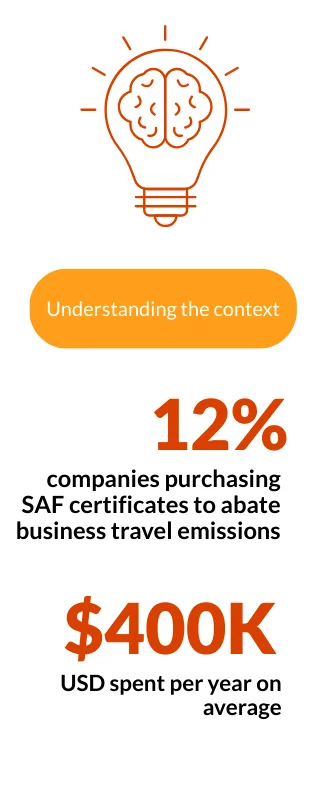
Step 0. Develop a holistic emissions reduction strategy
While SAF is an important lever, it should complement – not replace – a comprehensive business travel sustainability strategy. Develop a holistic strategy to mitigate business travel emissions by first tracking your emissions, setting goals, updating your travel policies and booking features, adding sustainability questions to RFPs, etc. Understand all of the levers to make your travel program more sustainable and take stock of your strategy by participating in the GBTA Sustainability Acceleration Challenge annually.
Useful resources
- Sustainable Business Travel Transition Pathway (GBTA Foundation) : A comprehensive overview of all the levers to make a travel program more sustainable
- GBTA Sustainability Acceleration Challenge (GBTA Foundation) : An annual, comprehensive, and confidential maturity assessment to take stock of an organization’s overall business travel decarbonization strategy
Step 1. Understand SAF
To build a strong foundation, familiarize yourself with the following key topics:
- Explore the challenge the aviation sector faces relating to decarbonizing and the role SAF plays in that context
- Understand the different types of SAF, their production pathways and sustainability considerations (biofuels vs efuels)
Useful resources
- SAF 101 Factsheet (RSB): An overview of what SAF is and how it reduces emissions over its lifecycle compared to fossil fuels
- SAF 101 (SABA): A deep dive into different SAF production pathways and an overview of sustainability certifications
- Book & Claim Factsheet (RSB) : An overview of how corporates are accessing SAF in the face of limited availability
- DEEP DIVE SAF Policy Around the World: A Sampler (World Energy): An overview of the different SAF policies
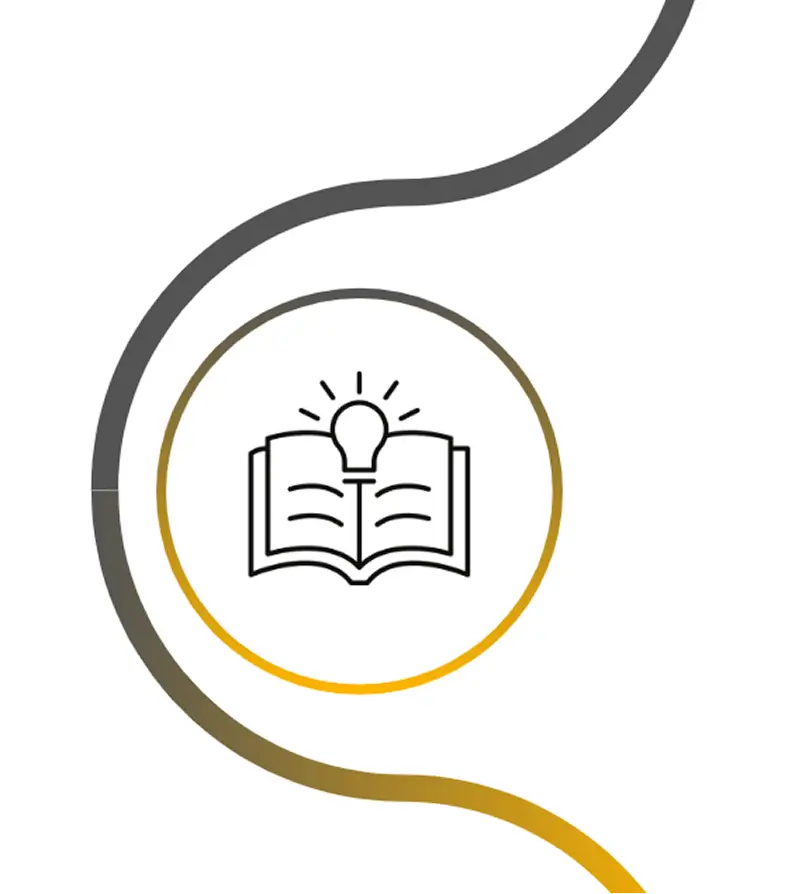
Step 2. Align stakeholders
To move forward confidently, bring internal stakeholders together to:
- Determine your organization’s decarbonization ambitions and assess how SAF fits within its broader, long-term sustainability strategy
- Identify key internal (e.g., finance, procurement) and external (e.g., Travel Management Company (TMC), airline partners) stakeholders needed for a cross-functional SAF strategy
- Define a cross-functional vision and objectives for SAF (i.e. Are we investing in SAF to achieve travel emissions reduction, as a strategic investment in sustainability technologies, and/or as a reputational commitment to showcase leadership
Useful resources
- Sustainable Aviation Fuels: Offtake Manual (World Economic Forum) : A report with best practices for procuring SAF, including how to align stakeholders (pgs. 17-23)
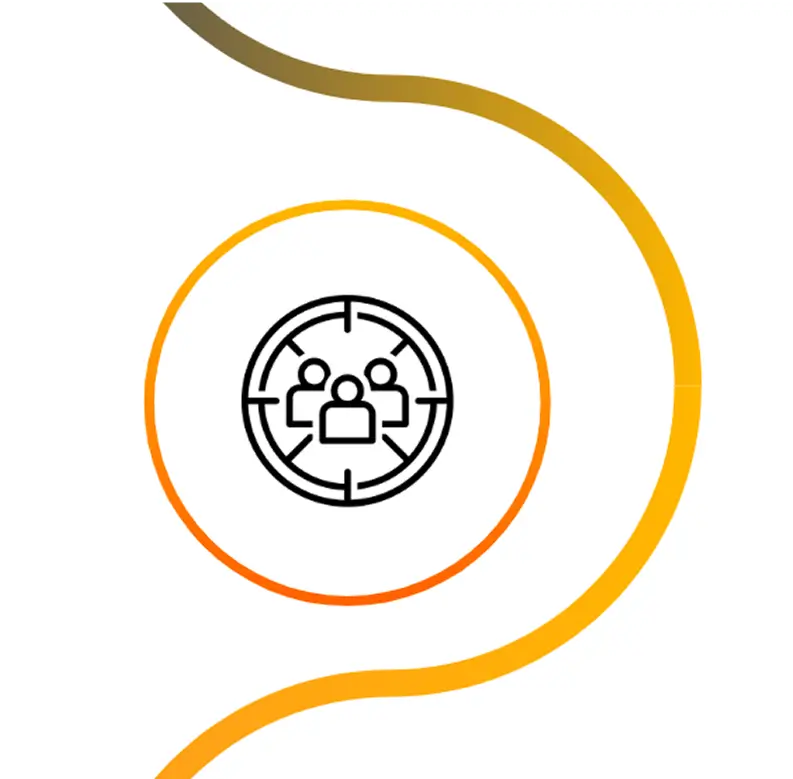
Step 3. Prepare the business case
Next, develop a strategic business case based on stakeholder conversations:
- Review the various purchasing mechanisms and determine your preferred option(s) based on cost, risk, and other important factors for your organization
- Define how SAF investments will be financed, whether through operational budgets or carbon budgets for example
- Compile your SAF strategy and if needed, develop materials (i.e. pitch deck, etc.) to build the business case for purchasing SAF
Useful resources
- Building the Business Case for SAF (SkyNRG): A whitepaper outlining how companies can make the business case to procure SAF
- Sustainable Aviation Fuels (SAF) Sustainability Guide for Corporate Buyers (Transport & Environment): A guide with a list of criteria to consider when purchasing SAF and different purchasing options for corporate buyers (pgs. 24-30)

Step 4. Purchase SAF
You’re ready to go through the procurement process:
- Vet the product and other consideration by legal, sustainability, procurement and other relevant teams
- Set up a contract with preferred purchasing option(s)
Useful resources
- Sustainable Aviation Fuels: Offtake Manual (WEF): A report with best practices for procuring SAF, including watchouts (pgs. 17-23)
- Sustainable Aviation Fuels (SAF) Sustainability Guide for Corporate Buyers (Transport & Environment): A guide with criteria to consider when purchasing SAF and different purchasing options for corporate buyers (pgs. 24-30)

Step 5. Communicate about SAF investments
Ensure your SAF purchases are accurately accounted for:
-
<
- Determine where to account for the SAF purchases internally (i.e. which line item in financial statements
- If desired, determine how your company will report on SAF purchases externally (annual report, emissions report, etc.)
Useful resources
- Sustainable Aviation Fuel Certificate (SAFc) Emissions Accounting and Reporting Guidelines (WEF): Step-by-step guidelines for standardized SAF accounting and reporting, including specifically for business travel (pgs. 25-28)
- Science-Based Target Setting for the Aviation Sector (SBTi): Target-setting guidance on how corporate buyers can account for SAF towards air emissions abatement (pgs. 30-32)
- DEEP DIVE Sustainable Aviation Fuel Greenhouse Gas Emissions Accounting and Insetting Guidelines (Smart Freight Centre & MIT Center for Transportation & Logistics): Deep dive into Emissions Accounting for SAF purchases (pgs. 25-31)

Resource Library

Understand SAF
- SAF 101 Factsheet (RSB): A brief explainer on SAF and its lifecycle emissions benefits over fossil fuels
- SAF 101 (SABA): A deep dive into different SAF production pathways and sustainability certifications
- Book & Claim Factsheet (RSB): How corporates are accessing SAF amid limited availability
- DEEP DIVE SAF Policy Around the World: A Sampler (World Energy): An overview of the different SAF policies

Align my stakeholders
- Sustainable Aviation Fuels: Offtake Manual (World Economic Forum): A report with best practices for procuring SAF, including how to align stakeholders (pgs. 17-23)

Prepare the business case
- Building the Business Case for SAF (SkyNRG): A whitepaper outlining how companies can make the business case to procure SAF
- Sustainable Aviation Fuels (SAF) Sustainability Guide for Corporate Buyers (Transport & Environment): A guide with a list of criteria to consider when purchasing SAF and different purchasing options for corporate buyers (pgs. 24-30)

Purchase SAF
- Sustainable Aviation Fuels: Offtake Manual (World Economic Forum): A report with best practices for procuring SAF, including watchouts (pgs. 17-23)
- Sustainable Aviation Fuels (SAF) Sustainability Guide for Corporate Buyers (Transport & Environment): A guide with criteria to consider when purchasing SAF and different purchasing options for corporate buyers (pgs. 24-30)

Communicate about my SAF investments
- Sustainable Aviation Fuel Certificate (SAFc) Emissions Accounting and Reporting Guidelines (WEF): Step-by-step guidelines for standardized SAF accounting and reporting, including specifically for business travel (pgs. 25-28)
- Science-Based Target Setting for the Aviation Sector (SBTi): Target-setting guidance on how corporate buyers can account for SAF towards air emissions abatement (pgs. 30-32)
- DEEP DIVE Sustainable Aviation Fuel Greenhouse Gas Emissions Accounting and Insetting Guidelines (Smart Freight Centre & MIT Center for Transportation & Logistics): Deep dive into Emissions Accounting for SAF purchases (pgs. 25-31)

Peer case studies
- Fueling the Future: How Julius Baer is Investing in Low-Carbon Aviation
- Driving towards Net Zero: Mercedes-AMG PETRONAS F1 Team’s Sustainable Aviation Strategy
- Investing in Innovation: PwC’s Holistic Strategy for Reducing Aviation Emissions
SAF Office Hours

SAF Office Hours
If you were in a room with 10 experts or travel buyers who have purchased SAF certificates, what would you ask them?
You will receive a response from a member of GBTA Foundation’s Sustainability Leadership Council or Corporate Advisory Board. Response rates may vary depending upon demand. Want to continue the conversation? Become a GBTA member to access the SAF Corporate Connect discussion forum in the GBTA Hub.
Check Your Knowledge
Indicate whether the following statements are True or False to see where to begin your SAF journey.
Case Studies
Other corporates purchasing SAF
GBTA Foundation SAF News and Announcements
GBTA Foundation Launches SAF Corporate Connect to Accelerate Sustainable Aviation Fuel Adoption in Business Travel
New self-guided learning hub empowers corporate travel programs to drive SAF integration and advance industry progress toward net zero Air travel remains one of the most challenging sectors to decarbonize—yet it’s essential for global business. And for companies committed to sustainability, Sustainable Aviation Fuel (SAF) is one of the few viable solutions available to reduce…
GBTA Foundation Unveils Step-by-Step Transition Pathway to Accelerate Business Travel’s Action Towards Net Zero
New roadmap for sustainable business travel takes corporate travel programs from ‘no action’ to ‘leading practice’ The GBTA Foundation, the cause-led arm of the Global Business Travel Association (GBTA), just unveiled its Sustainable Business Travel Transition Pathway yesterday at the GBTA Sustainability Summit, which gathered over a hundred travel leaders and sustainability experts from all…
GBTA Calls Upon All Companies That Rely on Business Travel to Demand Clarity on SAF Reporting
The Global Business Travel Association (GBTA), together with the GBTA Foundation and our Sustainability Partners, has published a position statement in response to the Science Based Targets initiative’s (SBTi) revised Corporate Net-Zero Standard (Version 2.0), urging unequivocal recognition of Sustainable Aviation Fuel (SAF) environmental attributes as a credible emissions reduction pathway for business travel. With…



